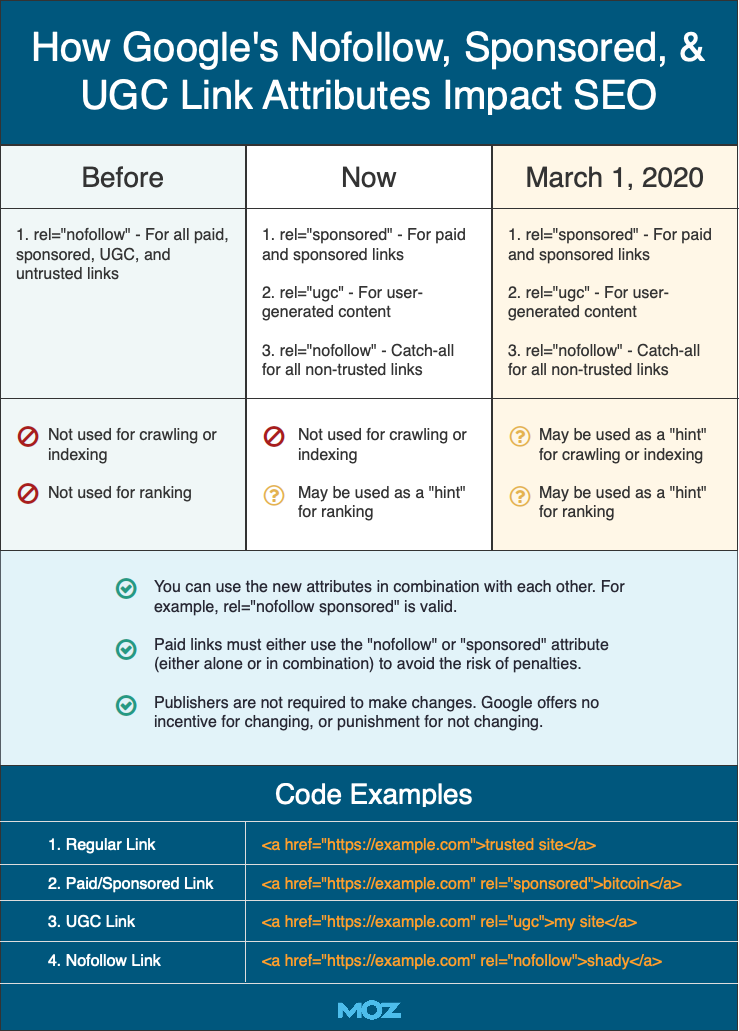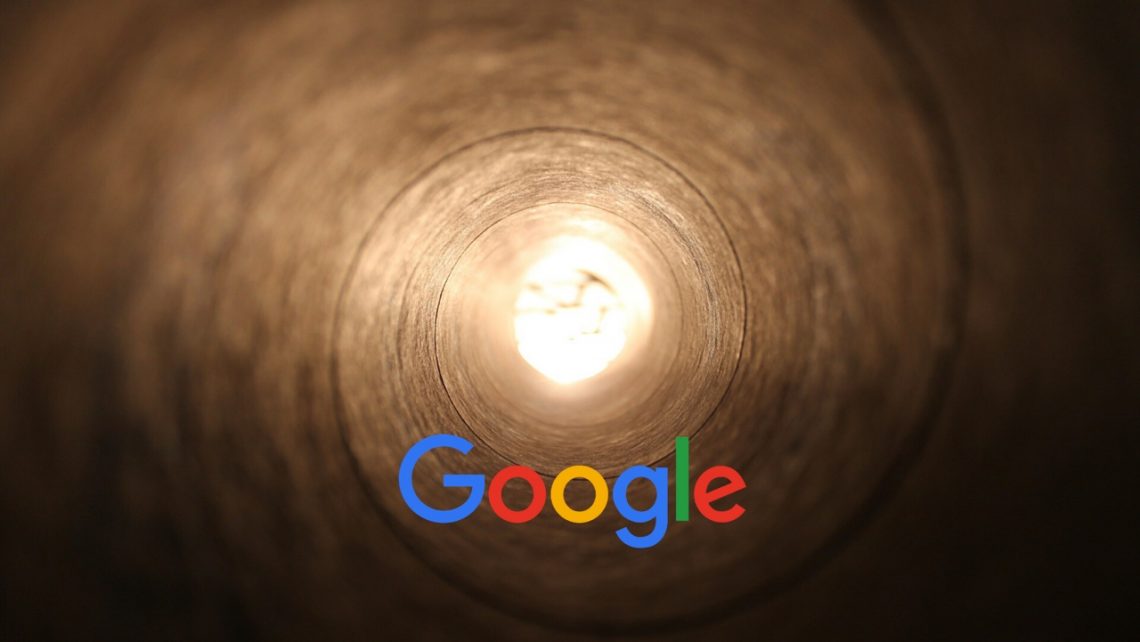It’s been a talking point in the SEO industry for years.
It is one of the most common ways for bloggers to make an income through sponsored content and guest posts.
And now – finally – after 14 years, Google has announced significant changes to “nofollow” links.
“Should bloggers include follow or nofollow links in sponsored content?”
That quote above has been the discussion point for many years in the digital marketing sector, and up until now the majority of ethical or white hat SEO agencies would always go with nofollow.
But as the blogosphere has grown, Google’s understanding of the web has diminished somewhat, because of the power that nofollow has over their bots. If all links on the web were nofollow, the bots would be blind and the algorithm far from accurate, so an update to the ‘nofollow’ rule has been long overdue.
WHAT’S CHANGING?
Back in September 2019, Google announced two new link attributes that provide bloggers, webmasters and website owners with new ways to identify the nature of particular links to Google. These, along with nofollow, now make up three different types of link attributes bloggers and webmasters can use. Here’s a summary of the new attributes, and a reminder of nofollow:
- rel=”sponsored”: Google now suggest to use this sponsored attribute to identify links on your site that form part of advertisements, sponsorships or other compensation agreements, such as gifted products. We assume this would also include affiliate links, although Google – typically – hasn’t explicitly said so.
- rel=”ugc”: UGC stands for User Generated Content, and the ugc attribute value is recommended for links within user generated content, such as blog comments and forum posts. Moving forward we’ll probably see WordPress, DISCQUS and Blogger move to this type of attribute automatically (currently they use nofollow)
- rel=”nofollow”: Use this attribute for cases where you want to link to a page, but don’t want to imply any type of endorsement, including passing along ranking credit to another page.You can use the new attributes in combination with each other.
You can also use the attributes in combination with one another. For example, rel=”nofollow sponsored” would be a valid attribute.
Up until now, Google ignored nofollow links for crawling and indexing purposes, and in fact warned bloggers and brands that buying and selling links respectively, could see them punished with a Google penalty, as it was against their guidelines.
Moving forward Google will treat nofollow attributes as “hints”, meaning they may use nofollow links for crawling, indexing AND ranking.
Moz created a great little table which explains the changes clearly:

WHEN DOES THE CHANGE COME INTO FORCE?
1st March 2020.
So the million dollar question is: will nofollow and/or sponsored link attributes count towards SEO rankings? The answer is still unknown as Google is being typically opaque. But time will tell (many SEOs have long assumed nofollow links do count towards rankings anyway).
SO DO I NEED TO CHANGE MY EXISTING NOFOLLOW LINKS?
According to Google, no you don’t. In their words: “If you use nofollow now as a way to block sponsored links, or to signify that you don’t vouch for a page you link to, that will continue to be supported. There’s absolutely no need to change any nofollow links that you already have.”
That said, we would recommend bloggers especially use the new sponsored attribute to flag to Google whether a link is paid or sponsored. In fact Google recommends you switch over to the sponsored attribute. You could also use rel=”nofollow sponsored” if you’re still not sure.
If you’ve never used nofollow links but still disclosed collaborations and affiliate links, don’t worry…you’ll probably have a natural link profile, but Google recommends tagging sponsored links moving forward.
IS THIS THE END OF NOFOLLOW LINKS AS WE KNOW IT?
We hope so. A Google update to nofollow links has been long overdue, and there are so many bloggers, brands, SEO agencies, digital agencies and PR agencies that ignore Google’s paid link guidelines….and Google has never clamped down on any blog (yet).
So maybe this is Google’s admission that the web has moved on, and how we highlight links needs to move on (much like tagging branded content on social media).
WHAT’S NEXT?
Sponsored collaborations will continue as normal. Agencies will ask bloggers for ‘do follow’ links as normal.
But on 1st March 2020 that should change. There’s currently no incentive for anyone to change, until Google does more than layout guidelines on a blog post. Until a site or blog gets penalised for using paid / sponsored links, I doubt much will change.
At the end of the day, it’s only in Google’s interests for bloggers, publishers and webmasters to make the link attribute changes.
We’ll know more on the 1st March, where Google will hopefully make another announcement, but only time will tell what the impact will be of the new link attributes.
There might just be light at the end of the nofollow tunnel.

Leave a Comment